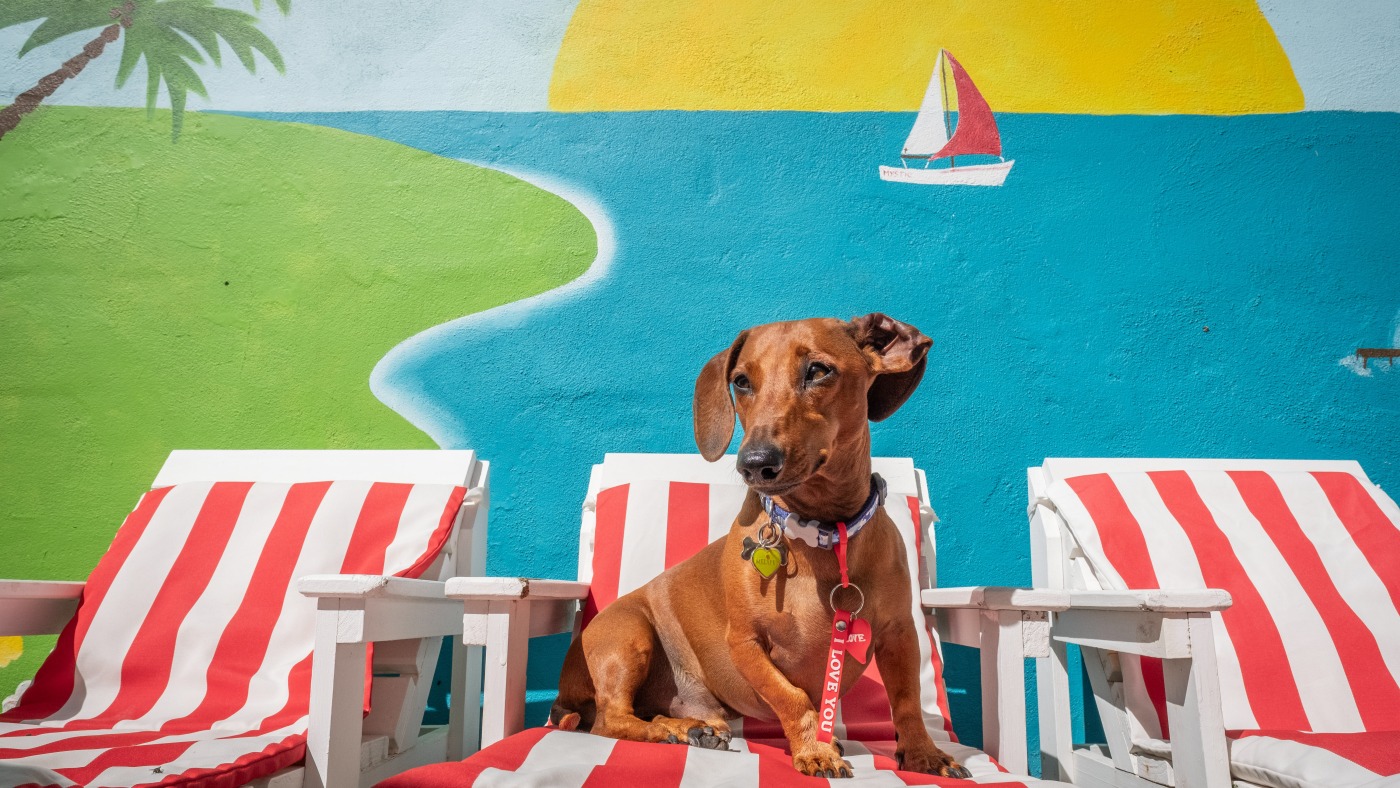The Paradox of Luxury Dog Hotels in South Africa
A Tale of Two Cities
Imagine a city where dogs lounge on custom-made sun loungers, listening to soothing Bob Marley tunes, while just outside, people struggle to make ends meet. This is the reality of Cape Town, South Africa, where luxury dog hotels have emerged as a controversial yet thriving industry. These establishments offer an array of high-end services that cater to the pampered lifestyles of pets, raising significant ethical and societal questions in a country grappling with high levels of poverty and inequality.
The Pampered Pet Phenomenon
Luxury dog hotels in South Africa are not your average pet boarding facilities. They offer an opulent experience that rivals high-end human resorts. At establishments like SuperWoof and AtFrits, dogs can enjoy spacious beds, plunge pools, and even presidential suites. The cost of a stay in the most expensive rooms at AtFrits is 535 rand ($35) a day, a sum that is more than a third of the national poverty line of 890 rand a month. This stark contrast highlights the disparity between the lifestyles of the wealthy and the impoverished in South Africa.
The amenities at these dog hotels are designed to provide the ultimate comfort and entertainment for canines. From gemstone therapy to reiki, these facilities offer services that cater to the holistic well-being of pets. The skydeck at Superwoof, for instance, features a shallow plunge pool where dogs can splash about and chase after balls thrown by the hotel staff. This level of pampering is a far cry from the reality faced by many South Africans who struggle with basic necessities.
The Ethical Conundrum
The presence of luxury dog hotels in a country with widespread poverty and chronic social issues presents a complex ethical dilemma. South Africa has one of the world’s highest murder rates and a pervasive legacy of apartheid, which has left many homeless and struggling. Opposite the luxury dog hotel SuperWoof, there is a night shelter for Cape Town’s many homeless, serving as a stark reminder of the social and economic disparities.
Critics argue that the existence of such lavish accommodations for pets is a misallocation of resources in a country where many people lack access to basic services such as healthcare, education, and housing. The debate centers on whether the money spent on luxury pet services could be better utilized to address the pressing needs of the impoverished population. The government’s national poverty line of 890 rand a month underscores the severity of the economic challenges faced by many South Africans, making the expenditure on luxury dog hotels seem extravagant and insensitive.
The Economic Perspective
On the other hand, proponents of luxury dog hotels argue that the industry provides employment opportunities and contributes to the local economy. The demand for such services indicates a growing market for high-end pet care, which can be seen as a positive economic indicator. Additionally, the existence of these establishments reflects a segment of society that values pet welfare and is willing to invest in their comfort and well-being.
Moreover, the COVID-19 pandemic has had a significant impact on the demand for dog hotels. With many people working from home, the need for pet boarding services decreased, affecting the industry’s revenue. However, as life returns to normal, the demand for luxury pet care is expected to rebound, providing a boost to the economy.
The Changing Face of Pet Ownership
The luxury dog hotel industry also reflects the changing attitudes towards pet ownership in South Africa. For many wealthy individuals, pets are considered family members, and their well-being is a priority. The bespoke pet care industry caters to this growing segment of society, offering services that cater to the unique needs and preferences of pet owners.
However, the reality of pet ownership in South Africa is diverse. While some pets enjoy luxurious accommodations, many others face neglect and abuse. The contrast between the pampered lives of pets in luxury hotels and the harsh realities faced by many animals in the country is a poignant reminder of the broader social and economic inequalities.
The Broader Implications
The existence of luxury dog hotels in South Africa is a multifaceted issue that touches on economic, ethical, and social dimensions. While these establishments offer unparalleled comfort and entertainment for pampered pets, they also highlight the stark disparities in a country grappling with poverty and inequality. The debate surrounding luxury dog hotels in South Africa serves as a reminder of the complex interplay between wealth, welfare, and societal values.
As the industry continues to thrive, it is essential to consider the broader implications and the potential for positive change. The question remains: can the luxury pet care industry coexist with efforts to address the pressing needs of the impoverished population, or is it a symptom of a deeper societal issue that requires urgent attention?
Paws for Thought
In conclusion, the luxury dog hotel industry in South Africa is a microcosm of the country’s broader social and economic challenges. It reflects the stark contrasts and complex realities of a nation in transition. While the pampered lives of pets in luxury hotels may seem extravagant, they also offer a glimpse into the changing attitudes towards pet ownership and the potential for economic growth. However, the ethical dilemmas and social disparities highlighted by this industry cannot be ignored. As South Africa continues to grapple with poverty and inequality, it is crucial to consider how the luxury pet care industry can contribute to positive change and address the pressing needs of the impoverished population. The future of luxury dog hotels in South Africa will depend on the ability to balance the pursuit of profit with the responsibility to address the broader societal issues at hand.

